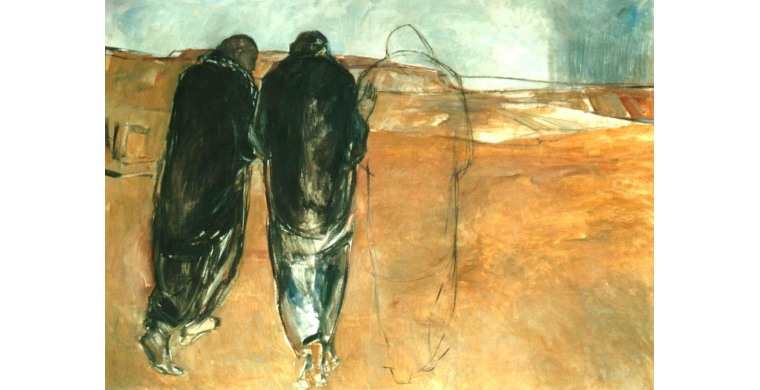A CONVERSATION
By Duane W.H. Arnold and Michael Newnham
www.virtueonline.org
September 27, 2022
Duane: I know Michael that the two of us have had some struggles with health over the last year or more. For myself, it is made me reflect a bit more seriously on the issues of life and death. In a recent book that I was reading, the author, George Weigel, pointed out the phenomena of the body resisting death. He asserted that he believed this was a remnant of the primordial condition in the garden before sin and death. That is, we were created for life, and not merely life in the physical sense but life with God. This primordial condition was broken by sin, yet the body retains a sense of the original condition at creation. From my own pastoral experience, I know there have been times at which I have felt it right to say to a terminally ill parishioner, "It's all right, you can let go now". I've said it, however, with the assurance that life is not limited by our span of years, whether or not that span is long or short. What has been your experience?
Michael: I think that author has made a profound observation. Early on in my ministry I was taught (probably by a Puritan divine) that the primary job of the pastor was to prepare his flock to die well. I took that to heart and one of the main ways I judge how well I've lived out my vocation is by how well my people have gone on to meet Jesus. Did they go with fear of what lies ahead or did they depart in peace and even anticipation? Before my surgery I had consciously prepared to die...to the degree that when I didn't, it actually caused me some confusion about what to do now. I had no fear of death itself...my fears were all about the loved ones I'd leave behind. I counted it a severe mercy when my feline companion died before my surgery... My human family had not given me permission to go...which meant I still had some things left to teach them.
Duane: As you know, when I received the results of some tests, I made sure that my will was up to date and went over my funeral plans. In the end, the surgery and the treatment were less dramatic than imagined. It did, however, provide a season in which I contemplated my mortality. That was a gift. As one grows older different patterns of life emerge. Most of us, especially in leadership positions, spend our lives in acquisition. That is, we acquire things, relationships and knowledge. This is true whether we are rich or poor. Yet, there is a transition to be made in which, rather than acquiring, we need to spend what remains of our lives giving. My Buddhist friends would say that this is a transition in which one becomes a sage rather than a prince. Finding your place when you're older is not easy. One has to reassess what is important given the time that is left to you. I think the prospect of one's own mortality helps in the process. By the way, going through this process during the time of a worldwide pandemic made coming out on the other side even more revelatory! I don't know about you, but for myself I have become convinced that our Roman Catholic brethren are correct when they speak of a "good death".
Michael: My concern these days is around the role that the church and clergy play in guiding people towards a "good death". It seems to me that it requires both a long term personal relationship with your priest or pastor and a known place within a local body. A good death is the result of good discipling ...
Duane: It is interesting that you say that. In my recent readings, I came across a list of Corporal Works of Mercy from the Middle Ages. It was basically a list of physical activities that give grace to both the giver and the recipient. The list included the following:
1. To feed the hungry.
2. To give drink to the thirsty.
3. To clothe the naked.
4. To visit the imprisoned.
5. To shelter the homeless.
6. To visit the sick.
7. To bury the dead.
You note that the last one was "to bury the dead". What was meant by this, however, was more than the mere laying to rest of the mortal remains of someone who had died. It was being present for another person at the end of their life. Moreover, after death it was incumbent to show honor to the person who had died. When I think of how death has been treated during the pandemic, it makes me ashamed. All too often, we set death aside. The rest of the list, might give us pause as well.
Michael: I think Jesus wrote the same list...a life lived in Christian community will include all those acts of grace and end in the last. I notice as well what isn't on that list...make your own application...














